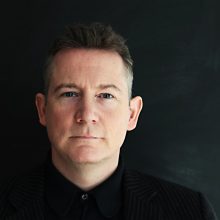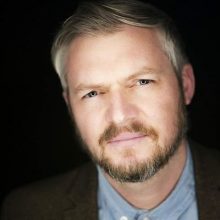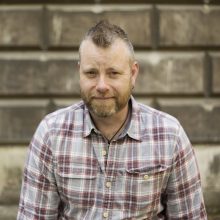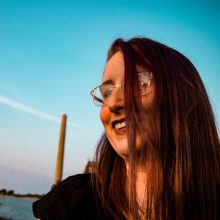The Wrong Move by Jennifer Savin
What led you into writing?
As a child I inhaled books and would sit for hours writing and illustrating my own stories. I burnt holes in my duvet from having it over my head to block out the light while secretly reading after bedtime – not realising the bulb from my little desk lamp was scorching the fabric. My first book, Abbie the Angel, that I co-wrote with a friend aged ten, morphed into us writing our own series about a group of female crime fighters (they all had names like Charissa the Cowgirl, or Debbie the Devil – I know, tragic). So writing has always been something brings me immense joy.
Literature remained a passion as a teenager too; I’d keep diaries and write awful poems about death whenever I boy I fancied didn’t like me back. Words have always been a form of therapy, a way of connecting with others and learning about the world. Storytelling is my greatest love and I feel so fortunate that I’m now able to write about both my own real-life experiences (and that of others) through my work as a journalist, and to create fictional lives and worlds in my role as an author. I’ve been a journalist for five years, having networked and interned relentlessly (working in pubs in the evenings).
How does a typical day look?
As well as writing fiction, I work full-time as a features writer for Cosmopolitan magazine – so when writing my debut book, a thriller called The Wrong Move, I’d work my day job from 9.30am – 5.30pm, break for a couple of hours to eat dinner, see a friend or watch TV, then write and edit from 9pm until the early hours. I was approached by Ebury and asked if I’d be interested in writing a book (then pitched them ideas), rather than me shopping around a manuscript, meaning I only had five months to turn my first draft of 85,000 words in. Now that that book is finished, I’m enjoying being able to focus my full energy on journalism once more, whilst working on a second book (which I’ve not yet pitched out to any publishers) at my own pace. I can’t explain how good it feels not to have a deadline looming over my head with this second baby.
Anyway! Your original question was ‘How does a typical day look?’…
Well, weekdays always start the same way: with an iced coffee. As I’m still working from home due to COVID, I’ll sit and drink that at my kitchen table, eat something like poached eggs on rye bread, while catching up with the news on Twitter.
Part of my job as a features writer is finding and writing appropriate news stories for the website, so that’s what I do until around lunchtime, when I’ll stop and switch back to writing longer features, conducting interviews, brainstorming ideas or pulling together regular pages for the magazine. I try to get out for a walk at lunch and listen to a podcast, or will retreat to my bedroom and read a trashy real life magazine (I’ve always been obsessed with them and wonder if on a sub-conscious level, as well as my own experiences, they contributed to some of the gorier aspects of The Wrong Move). The evenings, at the moment, I largely spend practicing French, meeting friends for dinner, doing a bootcamp class or watching Netflix with my boyfriend. No matter what I’m doing of an evening, I feel guilty that I’m not working on my second book (I always feel like I need to be doing more, always).
Weekends I tend to pack a lot in – I quit drinking five months ago (not sure if this is a ‘forever thing’ but I definitely needed a break and to re-evaluate my relationship with alcohol) and it’s a real novelty having my Sundays back. My friends and family are spread out all over the UK, so I tend to rotate my time between London, Brighton, Colchester and Blackpool (where my partner is from). This weekend just gone, for example, my friends in Brighton threw a (socially distanced) party in a forest, with a queer poetry reading and lots of lasers, as it was Pride. As for this weekend coming, I’ve booked a last-minute trip to Newquay to learn how to surf. I can barely swim, but love making impulsive plans.
In what ways do your characters test your abilities?
Oh God, in so many ways! Given that I’m a journalist as well as an author, it can sometimes take a minute to shift gears between thinking ‘this all needs to be 100% factually correct, this person’s quote needs to be accurate to the letter’ to ‘I can make the people on this page do whatever I want!’. Sometimes I hate them and even though I’m the one in control of their narrative, I just can’t seem to make my characters do what I want. They’re like rebellious Sims.
With my new, currently untitled book (about an eighteen-year-old who falls in love for the first time with a man who then goes on to become a world famous singer – when they break up she somewhat falls apart), a lot of it is based on my own experiences. I’m finding it a challenge to keep in mind that there are certain beats and rhythms that need to be hit in order to create a gripping storyline, when part of my brain is saying, “Well, that’s not what happened in real life”. It’s tough drawing from your life but also making it a (hopefully) riveting and slick piece of fiction, not just 85,000 words of ‘dear diary’ drivel about something that was once important to you.
When writing my first book, I sat and trawled through Google Images and Pinterest looking for photos of people who looked how my characters did in my head (one, for instance, called Marcus, I immediately knew looked like the lead singer from the band The Horrors). I stuck them all up around my desk and whenever I found myself getting muddled or hitting a wall, it helped to look at the visual images in front of me and think “Okay, is this how you would react in this situation, or how Marcus would react?”
What’s your setup?
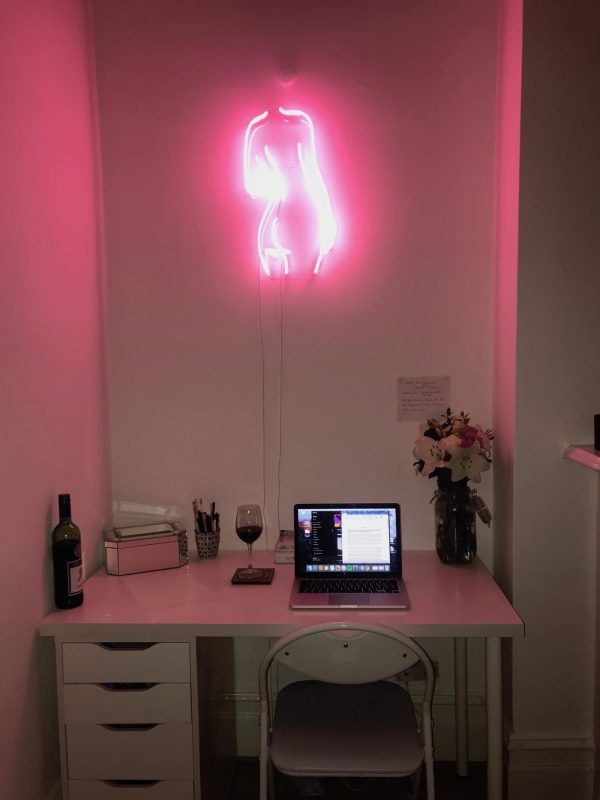
This is a shot of my desk in my old flat in Brixton, where I wrote The Wrong Move. I became even more nocturnal than usual when writing the manuscript, as I was fitting it in around a full-time job, holding down a relationship, some semblance of a social life and travelling back and forth between London and Bristol, to spend time with my grandma (who I loved – love? – more than anything) as she dealt with terminal cancer. Truth be told, because of the latter I still hold some resentment towards the book for taking up so much of my time. It was one of the most testing periods of my life.
I’ve always found it easier to write at night, perhaps because there aren’t as many distractions and the world feels quiet, so your brain is free to run wild. I quit smoking a few years ago now, but when I did, my desk would also always have an overflowing china teacup on it acting as an ashtray – I’d write a few hundred words then reward myself with a menthol rollie. When writing The Wrong Move, that changed to a glass of red or cup of coffee. By the end of the night I’d lie in bed and feel my heart beating so hard and fast that I once tried to record it on my phone, to see if you could hear it outside of my body. I really thrive on that feeling of being so exhausted from putting your all into work. It’s pretty incredible how physical writing can sometimes feel.
What lasting effects have your favourite authors had on your writing and style?
When I was asked to pitch ideas relating to the housing crisis (after a fiction editor at Ebury read and enjoyed some of my articles on the subject, one of which saw me share a bedroom with a stranger for ten days), I’d never read a thriller before. Shari Lapena, Claire Allen and Jane Corry soon had me hooked and I learnt a lot from them about building tension and suspense.
Through journalism (and the brilliant editors I’ve worked with, notably Farrah Storr – the now-editor of ELLE – and Catriona Innes, my features director at Cosmopolitan), I’ve learnt that it’s the tiny details about a person, or character, that transforms them from being a block of text on a page, to a ghostly figure sat beside you as you read. Describing how a character moves, the way they smell (for example a mixture of stale cigarettes, leather and washing powder instantly conjures up a certain type of person), what their laugh sounds like. It all adds up. Also, over the years I’ve learnt that less is often more too. Sentences don’t have to be crammed with elaborate and lengthy words to be beautiful, punchy and stay with your reader. Your writing needs to find a beat. Often the thoughts that you think nobody else has, many do, so be brave and weave them into your characters to make them feel more relatable and 3D.
What do you do for inspiration?
It’s usually when doing nothing that lightning strikes, so when I’m drifting off to sleep (I’ll quickly grab my phone and email myself notes) or in the shower. Just having a night out with friends can be amazing for generating ideas too, I have an idea for a book I’d love to write in the future called Glitter On Prescription, about a woman who lives with drag queens and about the special friendships that straight women and gay men form – whenever I’m out with my queer group of friends and somebody says something funny, I’ll jot it down. Is it bad to steal dialogue from your friends?
The book I’m working on right now, about relationships, identity and how our parents shape what we’re looking for when it comes to love without us even realising, is set in 2009 – so when I’m coercing myself into spending an afternoon writing it, I’ll sit and listen to a playlist of all the bands I loved back then (Two Door Cinema Club, Passion Pit, Foals). I’m the most nostalgic person ever, it’s borderline embarrassing.
What repeating themes do you find yourself pulling into your stories?
Unhealthy relationships, self-identity, poor mental health (and recovery), obsession, anxiety, depression, struggles with alcohol, the power and beauty of friendships, parties, drugs, pop culture, loneliness, grief, family dynamics, suburbia vs the city, generation rent, freedom, love in all forms.
How do you wind down?
I feel like I should say yoga (which I do on occasion), but the truth is I eat pizza or order Vietnamese food and watch Keeping Up With The Kardashians. I’m so sorry. I always feel relaxed when I’m by a body of water and sometimes wish I still lived in Brighton (or could teleport there), as being by the sea is a real tonic for me. When my anxiety is bad and I’m rigid with fear over who knows what, I just go to sleep to calm myself down. At my very worst I’ve been known to stay in bed for days on end. Touch wood that hasn’t been the case for a number of years now though.
What sort of challenges do you regularly overcome while world-building?
Writing feels like playing Tetris a lot of the time, it’s about shape shifting and moving the parts around until they click, and you get that ‘ahh’ feeling. Often the hardest thing is just getting started, I’m brilliant at procrastinating. It helps to remember that you can’t edit a blank page, but it’s really easy to let self-doubt creep in and avoid your laptop – I struggle to feel proud of anything I’ve written and there’s always a voice in my head saying “Why bother, it’ll be shit anyway?” You just have to push through that and pretend the only person who will ever read it is you. Write for yourself.
What are you reading at the moment?
I tend to have a few books on the go at any one time: usually an autobiography, a fiction book and a non-fiction book. My friend Josie and I set up a very tongue-in-cheek book club, Read It My Pony, a few years ago which is solely dedicated to celebrity autobiographies (we dress up as the author and have themed buffets every meeting, based on foods mentioned in the book – it’s hilarious), so at the moment I’m reading Inside Out by Demi Moore for that. For us, that’s a pretty high-brow choice. We started off with Gemma Collins’ memoir.
For my fiction offering, I’m reading Pizza Girl by Jean Kyoung Frazier (about a pregnant pizza delivery driver, who becomes obsessed with a struggling forty-something mother) – it reminds me of My Year Of Rest and Relaxation in the way it follows the characters thoughts when they go off on a tangent and the pace is quite slow and steady. The protagonist is a weirdo, but cool at the same time, and not much really happens.My current non-fiction read is Mind The Gap by Dr Karen Gurney, which is all about female sexuality and how so many of the ‘facts’ we think we know are actually myths (I heard her on a podcast and thought she spoke a lot of sense).
In terms of other books, I’ve read lately and really enjoyed, it’d have to be The Consequences of Love by Gavanndra Hodge, the former deputy editor of Tatler. It’s a gripping and brilliant memoir about growing up with an addict father and losing a sibling – I couldn’t put it down and I love her tone. I also devoured Queenie by Candice Carty-Williams not long ago, and really enjoyed it. All the recent conversations taking place around the Black Lives Matter movement made me realise that I desperately needed to diversify my bookshelf and a friend recommended that one to me. It’s about a twenty-something, Black journalist dealing with a break-up, friendships and family life – it was both relatable and educational. My ‘to read’ list is extensive.
What’s the most useful advice you could give to an aspiring author?
Buy and study Save The Cat Writes A Novel, it’s a fantastic guide to help writers of all levels map out the plot of their story. I wish I’d discovered it before writing my first book! Also, I know it’s easier said than done, but just start writing. Even if what you get down feels like a load of rambling nonsense, you can always refine it later – every story has to start somewhere. I also became obsessed with a website called Percentage Calculator when I was writing The Wrong Move and found it strangely motivating to see when I’d reached 4%, 14%, then 94% of my word count.
Tell us about the book you’re promoting.
Set in a Brighton flatshare, The Wrong Move sees twenty-something Jessie Campbell move in with three strangers after escaping an abusive relationship. At first, she’s delighted to be free and thinks she’s found the perfect new home, until things start to go wrong… The book asks how well can we ever really know the people we live with?
👋 Hi! I run Author Interviews
As a new writer I found myself itching to contribute to a thriving, creative community, so I made Author Interviews and I've met loads of wonderful people in the process. You can buy my debut fantasy RINGLANDER: THE PATH AND THE WAY from Amazon.
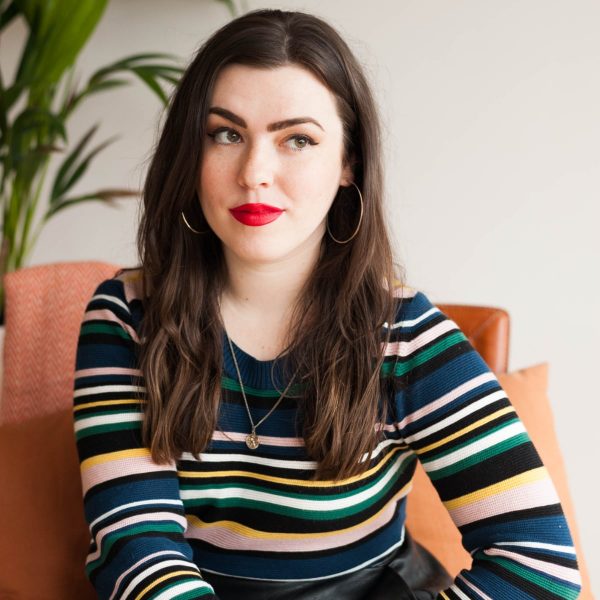
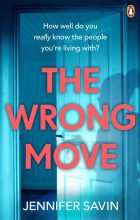
 Audible
Audible